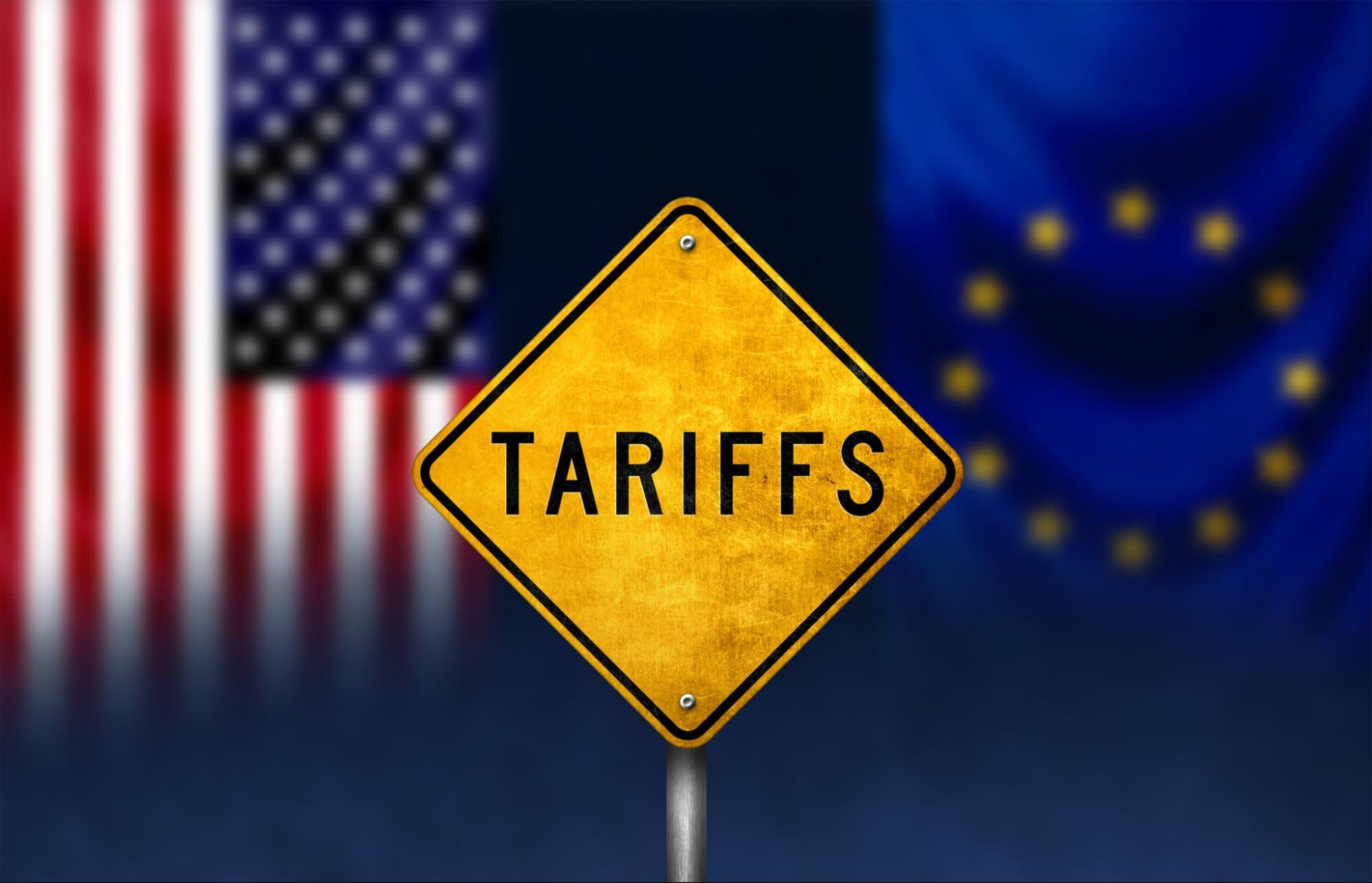- Blog
- Impact of Tariffs on the European Used Car Market
Impact of Tariffs on the European Used Car Market
Find out how new U.S. tariffs could impact the EU car trade and what your dealership can do to stay ahead.

Das Wichtigste in Kürze
- Tariffs are mainly aimed at new vehicles, but their effects often reach the used car market too, especially through pricing and availability.
- The U.S. tariffs could reduce demand for European cars in the American market. This may impact EU exports and increase the number of vehicles staying in Europe.
- Electric vehicles could see the biggest impact, especially if tariffs reduce the number of affordable Chinese models coming into Europe.
- It’s a good time to review your sourcing strategy and keep an eye on vehicle origin.
Tariffs have been part of international trade for a long time, but they’re now at the center of discussion. One major reason is the recent announcement in the U.S. to introduce a 25% tariff on imports from certain countries, including China.
Although the term might sound distant from your day-to-day business, you’ve probably already encountered tariffs in some form. For instance, if you’re a car trader who has imported vehicles from outside the EU, you paid import tariffs.
Now, with changes to global trade policies and discussions about tariffs on vehicles, you might be wondering how this could affect your business.
To keep you informed, we’ll guide you through what tariffs are, who pays them, and what they might mean for the European used car market and the wider used car economy.
What are tariffs?
A tariff is a tax placed on goods imported from another country. This includes vehicles, and vehicle parts as well.
When a vehicle is imported, the business or individual bringing it in pays the tariff. So, customers themselves don’t directly pay tariffs, although it’s likely that sellers will increase prices to cover the extra cost.
The main purpose of tariffs is to protect local industries by making imported goods more expensive and less competitive.
If you prefer watching instead of reading, this video by Autovista offers a clear explanation of tariffs.
Now, there are two main types of tariffs that you’ll encounter in the car trade:
- Ad-valorem tariffs are calculated as a percentage of the vehicle’s value. This is the most widely used type in the automotive sector.
- Specific tariffs are a fixed fee applied to a type of imported or exported product. For example, it could be a €500 tariff on new-car imports.
The tariffs mentioned in the U.S. context refer to ad-valorem tariffs, meaning that 25% of the imported vehicle’s value is added as a tax.
As you can see, big shifts like this in automotive markets as large as America can quickly affect global dynamics. Even the European Union has some concerns about how these changes might impact its own automotive sector.
Here’s what EU Commission President Ursula Von Der Leyen said on the subject:
“The automotive industry is a driver of innovation, competitiveness, and high quality jobs, through deeply integrated supply chains on both sides of the Atlantic. As I have said before, tariffs are taxes – bad for businesses, worse for consumers equally in the US and the European Union.”
Additionally, in the days after the tariff announcements, investors reacted quickly. The stock prices of major European automakers like VW, BMW, and Mercedes fell by around 6–8%, highlighting concerns about the potential impact on exports.
Still, the tariffs are now in place, and the best thing you can do is stay informed and prepare for possible shifts in pricing and demand.
Tariffs and the automotive industry
Why should any of this matter to you?
Well, tariffs affect the automotive industry most directly because many car manufacturers rely heavily on international trade. So, new car prices can increase when tariffs increase.
Also, there’s the automotive supply chain to consider.
Car parts are often produced in different countries and then assembled elsewhere. If any part of that supply chain crosses a border with tariffs in place, the total production cost goes up.
This means that the country of origin can directly influence how much tariffs apply and how much the final product costs.
Now, let’s see how these global implications apply to the European used car market.
Potential impact of tariffs on the European used car market
Even though tariffs are mainly aimed at new vehicles and parts, their effects often reach the used car market.
If tariffs raise the price of new imports, more buyers may shift to used vehicles. This brings us to a key question many dealers are asking: will used cars get more expensive?
In many cases, yes. Tariffs can limit the availability of affordable new cars, pushing up prices of the used vehicles.
And in case you’re importing cars from outside the EU, higher tariffs could make those deals less appealing. That might make more traders look for vehicles within the EU, driving up demand and making good stock harder to find.
Electric vehicles are especially sensitive to these changes. As Autovista notes, tariffs on Chinese models could mean fewer low-cost options on the market and more price uncertainty.
What should your dealership do?
While you can’t control global trade policy, you can prepare your business for possible changes. Here are a few things to consider:
- Keep an eye on vehicle origin: Tariffs depend on where a car (or its parts) was made, not just where you’re buying it from. Before you bid or buy, check the country of origin. A car built outside the EU might come with extra costs, even if it’s sold from within the EU.
- Review your sourcing strategy: If you rely on imports from outside the EU, you could start comparing offers from within the single market to avoid new or increased import tariffs.
- Watch EV pricing trends: With talk of tariffs on Chinese EVs, the market could shift fast. If you’re trading electric vehicles, monitor prices closely and consider stocking up on affordable models while supply lasts.
All in all, while tariffs are currently a primary concern for American businesses, it’s best to think ahead because shifts in global trade policy can come quickly, and Europe may follow with similar measures.
Staying informed now can help you avoid sudden surprises later!
eCarsTrade ist nicht nur eine Online-Auktionsplattform, sondern bietet auch wertvolle Ressourcen für Autohändler und -verkäufer. Unser Blog versorgt Sie mit Ratschlägen von Experten zu verschiedenen Themen, darunter:

